Going through a difficult time in life and don’t know what to do next? Well, play your favorite song and you’ll feel calmer than usual. This is how music heals you. It is also referred as music therapy that calms our mind from stress and anxiety.
Want to know more about the benefits of music? Continue reading this article.
Here’s How How Music Heals and Inspires Us
KEY POINTS
Research shows that music, especially singing collectively, has positive social benefits.
Music has been shown to reduce depression and anxiety, even in high-stress jobs.
Music can help us to be resilient by reinterpreting difficult experiences to be less threatening.
Do you have a certain song that helps you weather your life’s storms? Whose lyrics capture your feelings, or whose beat shakes you out of your rumination? Do you listen to music to reflect your mood? Or maybe even to change your mood?
Think about how, during the dark depths of the early pandemic in 2020, people across Italy, Canada, and the United States would open their windows each evening and sing together. And how those in other countries also found ways to share music—including people singing together virtually online.
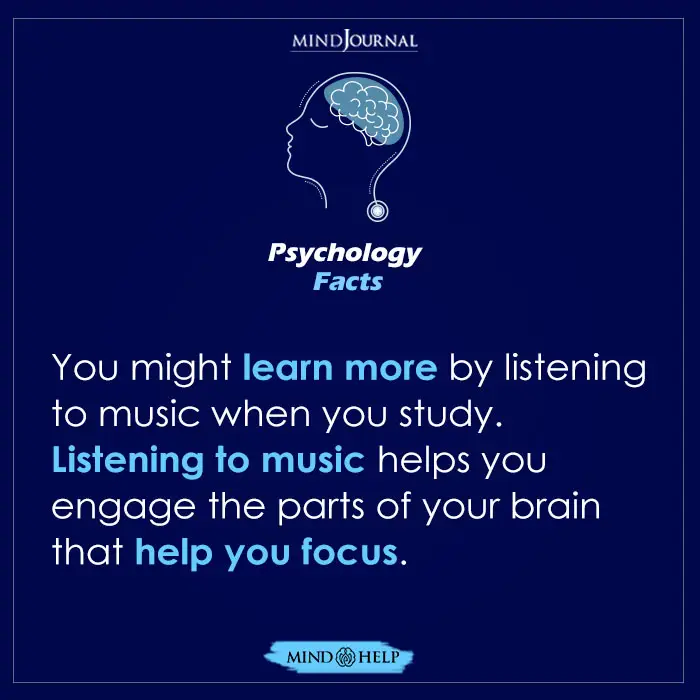
Their collective music-making was a remarkable testament to the human drive for survival. It was also a powerful reminder that our individual survival is linked to the solidarity we find in our shared humanity. Openly participating together in expressing the hope that keeps us going feels natural in the midst of a scary situation affecting everyone.
Related: 36 Most Relaxing Songs For Anxiety, Stress And Depression
What The Research Shows
Research suggests that singing together fosters both individual health and social bonds among those who join in. Put simply, the endorphins it releases in our brains make us feel good. They also increase our ability to tolerate pain—including emotional pain, like that we experienced seeing such disturbing pandemic images as the tractor-trailers used as overflow morgues in New York City because so many people were dying of COVID-19 in the early months of the pandemic.
A group of scientists who met back in 2006 at Stanford University’s Center for Computer Research in Music and Acoustics noted that research has demonstrated that music with a strong beat stimulates the brain and ultimately causes brainwaves to resonate in time with the rhythm. On the other hand, low beats encourage the slow brainwaves that are associated with hypnotic or meditative states. Faster beats may encourage more alert and concentrated thinking.
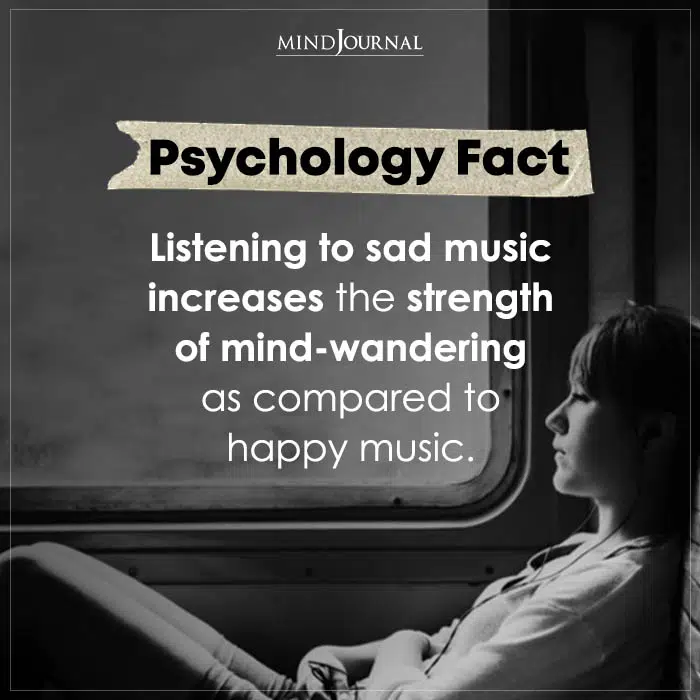
Listening to music has been found to reduce stress and anxiety even in critically ill hospital patients. One study found that even front-line nurses—a profession already high in stress and higher than ever in the pandemic—can reduce their stress by taking a break and listening to soothing music. In the study, one group of nurses listened to soothing music of their choice for 30 minutes while the other group simply rested quietly in a chair for 30 minutes. Researchers found after the 30-minute rest the nurses who listened to music had lower levels of cortisol, the stress hormone, than those who had simply rested.
Recent research demonstrates that adding music to standard therapeutic tools made a difference for people with depression and anxiety compared with therapy without music.
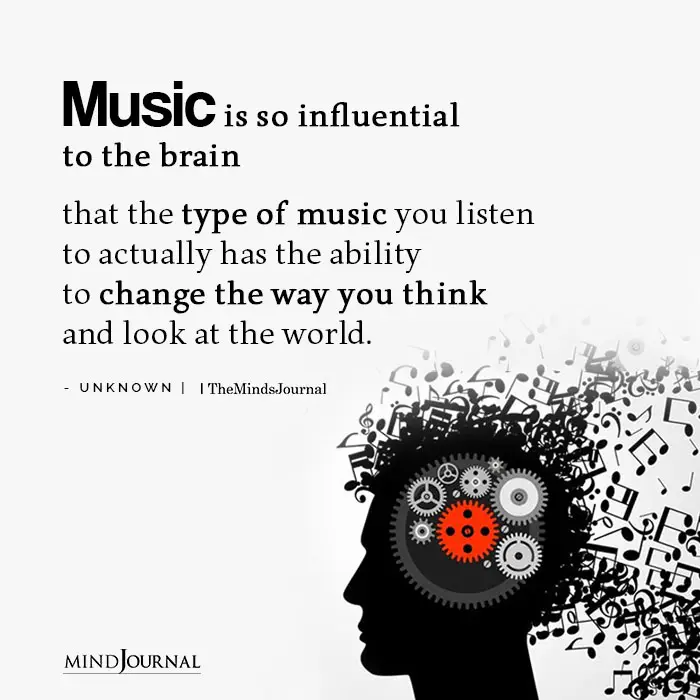
Singing And Making Music Together Supports Resilience
Music, especially vocal music, has always been important to me. Ever since I was a boy, I have had an ear for human voices, able to recognize and distinguish individual singers by the unique tone of their voice. I’ve also had a knack for remembering song lyrics, meaning I can sing along with a lot of songs. Best of all, I have been blessed with a pretty good tenor voice, and I love to sing.
Add these things together, and you can understand why I have always had a song for every event, mood and occasion. I have used my mental jukebox and singing voice to vocalize my emotions. I have songs to motivate me when I need to recharge my energy, and other songs to give voice to loneliness and sadness. My repertoire includes plenty of songs to express joy and celebrate life. They are all part of why music has always been central to my own resilience.
Related: Listening To This Song Reduces Your Anxiety by 65%
I’ve thought about these things—and wrote this piece—after recently reading Harriett Beecher Stowe’s famous nation-changing 1852 novel Uncle Tom’s Cabin. Stowe evokes powerful images of the enslaved women and men who labored under the hot southern sun, picking cotton.
They often sang spirituals together as they worked. “Nobody Knows the Trouble I’ve Seen” was one of the popular tunes included in the 1867 collection Slave Songs of the United States, the first-ever collection of African American music. Singing together was a way to ease each other’s pain and sorrow, and to provide strength to get through another day of bondage.
Another cultural reference: In the 1956 movie adaptation of the Rodgers and Hammerstein musical “The King and I,” Deborah Kerr in “I Whistle a Happy Tune” sings:
While shivering in my shoes
I strike a careless pose
And whistle a happy tune
And no one ever knows I’m afraid
The result of this deception
Is very strange to tell
For when I fool the people I fear
I fool myself as well
Her whistling is a version of “fake it until you make it.” The cheerful music diverts her mind from her fear so she can act instead with courage. It helps her manage her emotions and act from a more centered position.
Clearly, as research shows and as the pandemic singing and slave songs of old remind us, music can help us deal with whatever life may bring (or throw at) us—whether we whistle, sing, or simply listen, especially if it’s shared with others.
Related: The Oldest Self-healing Method For Whole-Body Wellness
We hope that you were able to find out how music inspires your heart and soul. Share your thoughts with us in the comments section below!
Written by: John-Manuel Andriote Originally appeared on: Psychology Today Republished with permission
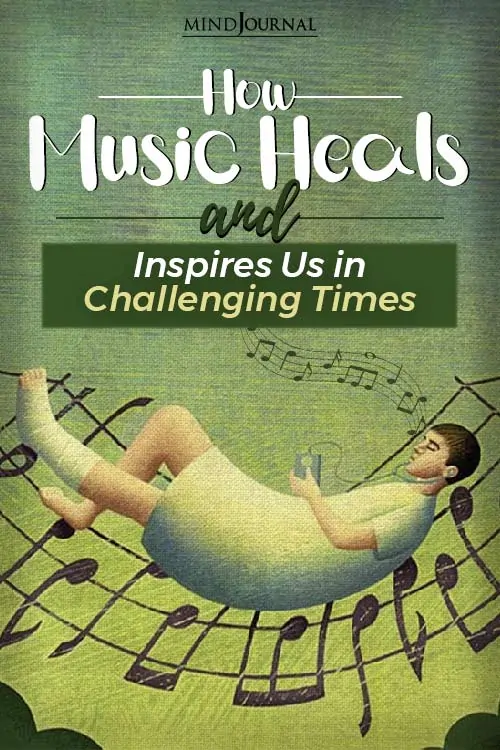
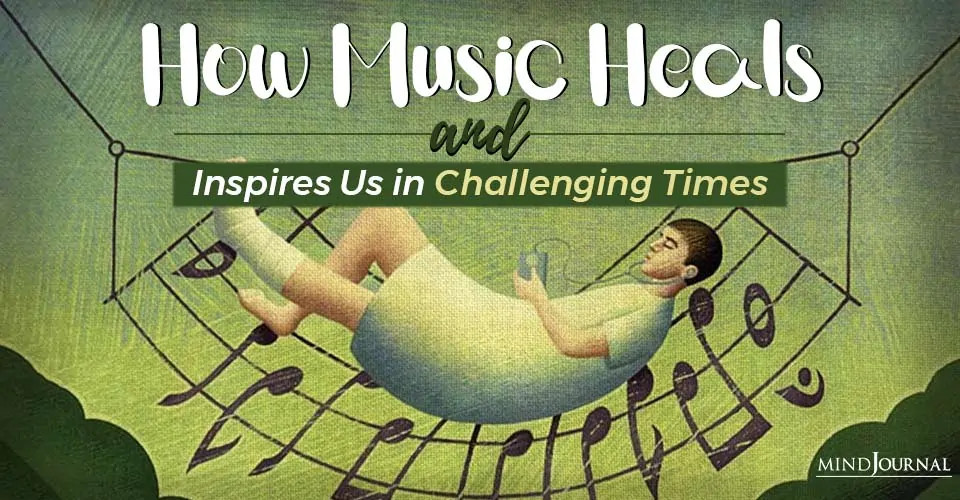



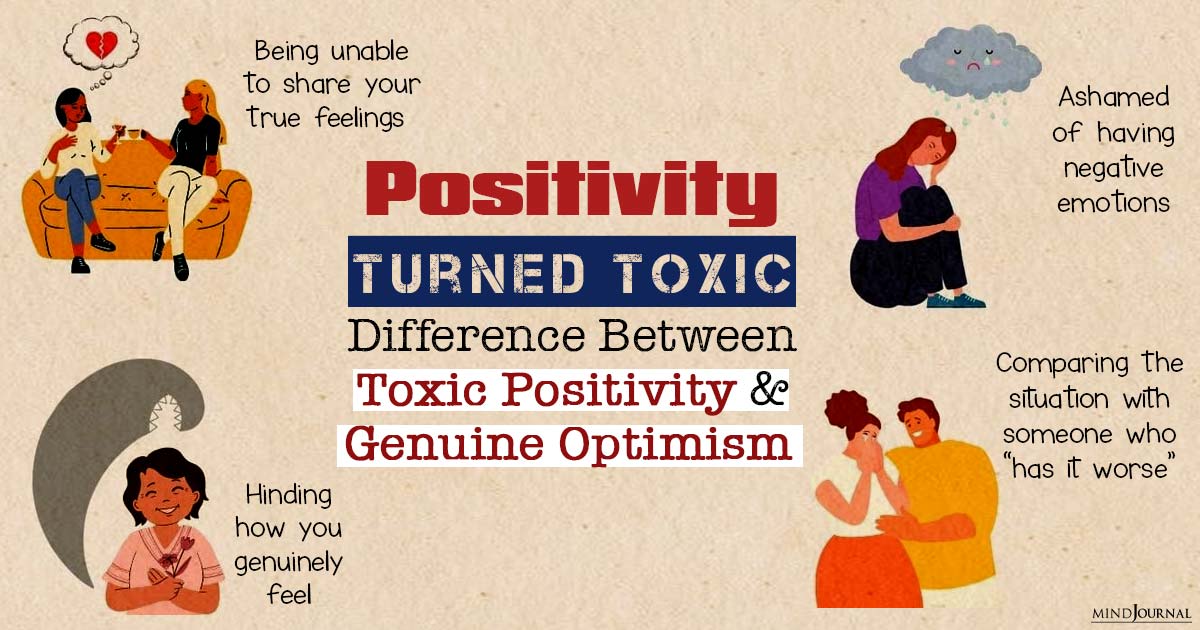



Leave a Reply
You must be logged in to post a comment.